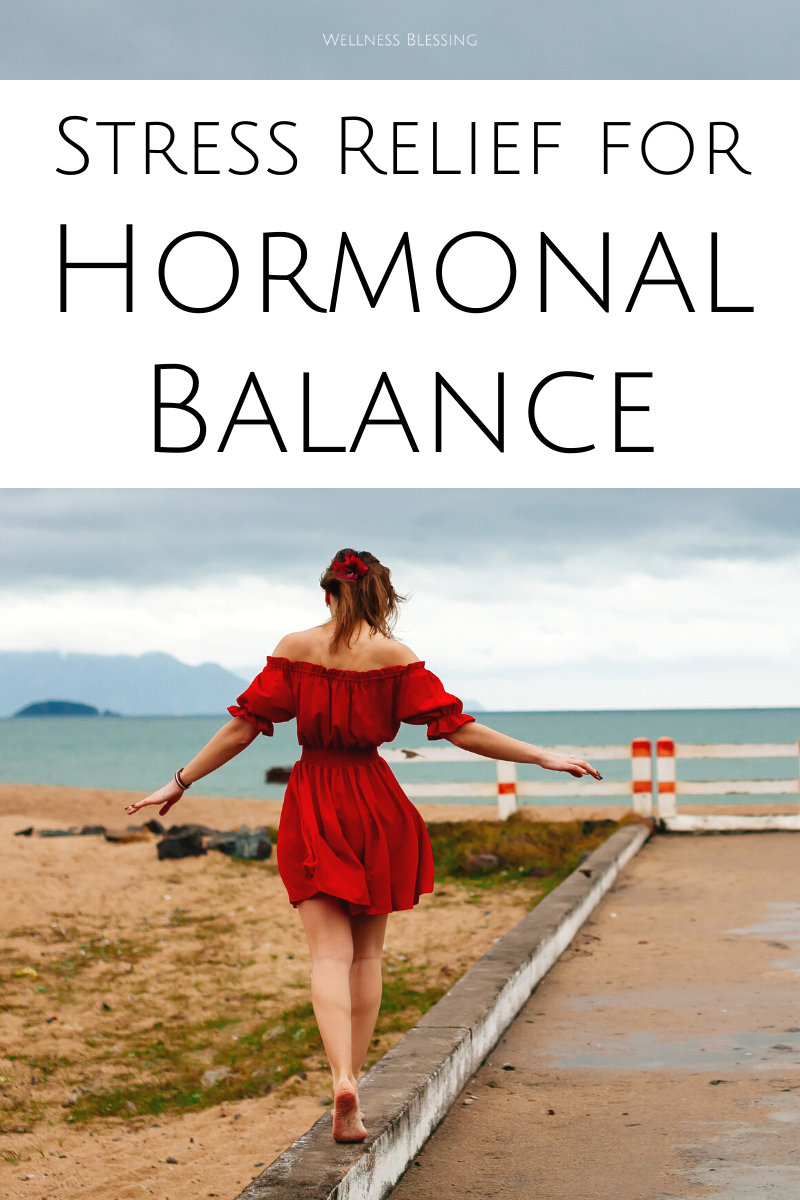Calm Your Hormones: Stress Relief for Hormonal Balance
Irritability, insomnia, bloating, mood swings, breakouts, and aches, oh my!
These are a few of the signs of the rollercoaster of hormones that women can experience.
90% of women suffer from symptoms of PMS at some time during their menstruating years.
Hormones are powerful chemical messengers within our bodies.
They orchestrate an elaborate symphony of cellular communication to synchronize our reproductive cycles, sleep, emotions, and life-giving systems.
The word hormone comes from the Ancient Greek word ὁρμῶν (hormôn) which means “setting in motion”, “urging on”, or “impulse to do a thing”.
Hormones are created within our endocrine system and then travel on the dynamic fluid pathways in our bodies to stimulate actions and affect all of our organs and tissues.
It’s vitally important to support hormone health because these messengers are responsible for essential actions throughout our bodies every day.
Hormonal balance is health.
Many women have grown accustomed to dealing with PMS, perimenopausal symptoms, and other hormonal issues.
However, this does not have to be the way.
Trying to figure out how to support hormonal balance can be confusing, as hormones create a wide range of effects throughout the body.
Women may experience a variety of symptoms from anxiety, insomnia, low libido, weight gain, skin changes, PMS, hot flashes, and more.
Also, the symptoms can vary depending upon your age, the stage of life you are in, and where in your menstrual cycle you are.
Women go through a full spectrum of hormonal changes in their lives from puberty, through the menstruating years, and into menopause.
If a woman becomes pregnant that creates even more unique hormonal changes through the childbearing year and beyond.
Hormones are constantly in motion and changing.
There are many proven ways to support hormonal health in all the stages of a woman’s life through wellness lifestyle practices including nutrition, fitness, stress management, and more.
80% of diseases are lifestyle-related.
One of the biggest changes to healthcare today is the growing emphasis on healthy daily living.
Treating hormonal imbalance through pharmaceutical birth control or surgery does nothing to address the cause of the problem if nutrition, exercise, habits, and stress are ignored, and they often add on undesired side effects.
With a little effort, a healthy lifestyle can be cultivated through education, support, and even incentivization.
Health-promoting practices send positive messages to our hormones and train them for optimal performance so that they will communicate more effectively throughout our bodies.
Calming your hormones involves getting to the root of the issue, and addressing the foundation of hormone health.
Sometimes the best way to find peace with our changing hormones is to simplify our own lives.
Stress is the biggest trigger of hormonal disruption.
If your hormones are out of whack, maybe rather than blaming your hormones, it’s time to look at what is causing stress in your life and see if you can let that go.
Stress increases cortisol and adrenaline. These hormones elevate in times of stress to help us to respond to danger and threats.
However, high levels of stress hormones interfere with our body’s production of our sex hormones including estrogen, progesterone, and testosterone, as well as serotonin, a calming hormone, and neurotransmitter.
Relaxing activities that help to decrease stress are an important part of a wellness lifestyle.
Exercise, stretching, taking a bath, getting a massage, and spending time in nature are all proven ways to calm the mind, boost positive emotions, and support whole health.
It’s vital to take time each day to engage in healthy activities that bring joy and peace into your life. That may be journaling, creating art, dancing, listening to music, playing an instrument, prayer, or other inspiring practices.
It’s also helpful to decrease outside stresses through reducing obligations.
Sometimes saying no is the best thing to preserve your peace and health, and to prevent high levels of stress hormones.
Major stresses including grief and trauma can throw off your hormones so much that women may not ovulate, have delayed ovulation, and then have delayed menstruation.
If your period is late or your cycle becomes irregular it may be because of stress.
Big changes in lifestyle such as travel or moving may also cause irregular cycles.
During times of stress, it’s even more essential to prioritize good sleep, nutrition, exercise, and stress management.
Many relaxing activities promote self-care, stress relief, and calm hormones.
I recommend trying new things to discover what you love and to create variety which will increase the joy of the activity, rather than it being a chore.
Calming Activities for Hormone Balance:
Walk in nature
Gardening
Dancing to favorite music
Warm foot bath with essential oils, baking soda, and Epsom salt
Soaking in a warm bath
Deep breathing
Journaling
Painting
Coloring
Swimming
Soaking in a hot tub or hot spring
Stretching
Singing
Drumming
Prayer
Drawing
Reading a book
Napping
Massage
Watch the sunset
Simplify
Finding a new hobby or investing time in a hobby you love can be calming and balancing for your mind, emotions, body, and hormones.
Try new things to discover what brings you peace and joy - it can be different for each person.
Consciously addressing our stress levels is one of the best things we can do for hormone health, regulating our cycles, increasing libido, and enhancing fertility.
Hormone health supports our whole body, mind, and spirit health.
Your health is worth it!
Many blessings,
Kara Maria


